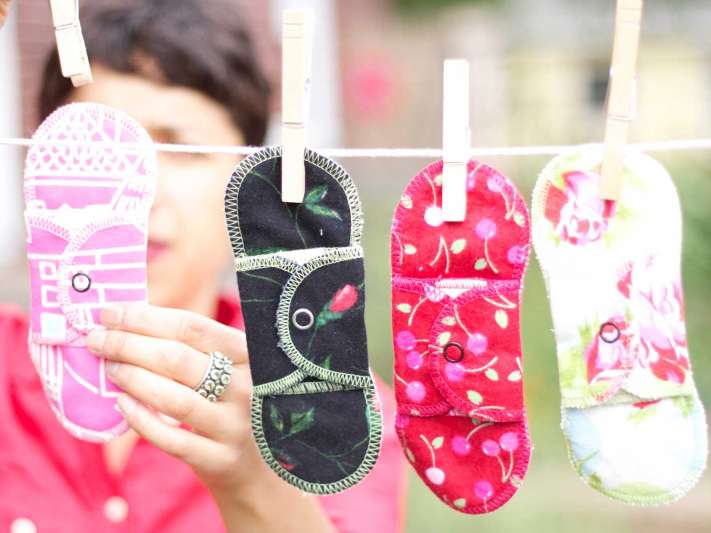
Eco Friendly Cloth Pads Araku Tribals
Girl students from the tribal villages of Araku are looking to do their bit for the environment and be responsible citizens. They are promoting the use of eco friendly, reusable, cloth pads instead of the regular old sanitary napkins that cannot be recycled.
Their aim is to reduce the number of sanitary napkins that go into landfill by February 2018. They also look forward to educating their urban counterparts about the importance of using these eco friendly cloth pads whenever they visit Araku. Christened the Pad4Pad programme, the cloth kit they are promoting can be used for almost two years.
These cloth kits are donated free of cost by Auroville in Puducherry. Each kit from EcoFemme consists four reusable cloth pads that come in a special bag. 400 kits have already been distributed to girl students aged between 11 and 16. These students are from Government Tribal Welfare Ashram Schools at Kothaballaguda and Ganella.
Future plans include distributing these kits that cost Rs 475 amongst 1500 students in phases and make them join the cloth pad revolution. Names of the students have been written in markets along the kits so as they don’t get exchanged – for hygienic reasons. The facilitator of this programme – Jayashree Hatangadi – had shared with Auroville the problems these students face regarding filth in toilets and garbage disposal.
Women from developed countries like Japan and Sweden will pay more for their Ecofemme kits so underprivileged girls in other countries have access to use these kits, doing their bit to lessen the garbage burden on this planet. They want to ensure that girls living in ecologically fragile areas like Araku understand the importance of using these environmentally friendly option.
Disposable sanitary napkins are made out of compressed cotton and chemicals stuffed into plastic packets. On an average, every woman throws away 150 KG of these non-biodegradable absorbents every year. After being thrown away – there remains the question of whether it is biomedical or plastic waste. Other than that, after they are collected by the garbage collector they are segregated manually by waste pickers who separate these soiled napkins from recyclable items. Not only does this expose these pickers to various diseases, the napkins are then taken out of the city and buried in landfills. 90% of these napkins is plastic and this is harmful to both health and the environment. These napkins continue to stay in landfills for 800 long years. While the Indian government keeps trying to push the idea of incinerating these napkins, the required temperature is 800 degrees, which is difficult to handle, not to mention harmful emissions from the incineration.
This post was last modified on 09/03/2017 3:19 pm
There will be no drinking water supply in several wards under the purview of Zone…
As we inch closer to the climax of the 2024 election, political parties in the…
Love tacos, burritos, and nachos? So does Vizag! When it comes to food, the city…
Chief Minister Y S Jaganmohan Reddy has claimed that it is he who stopped the…
Mercury levels in Visakhapatnam have come down after a spell of rain on Monday night…
Prime Minister Narendra Modi has alleged that the Yuvajana Shramika Rythu Congress Party (YSRCP) government…
Leave a Comment